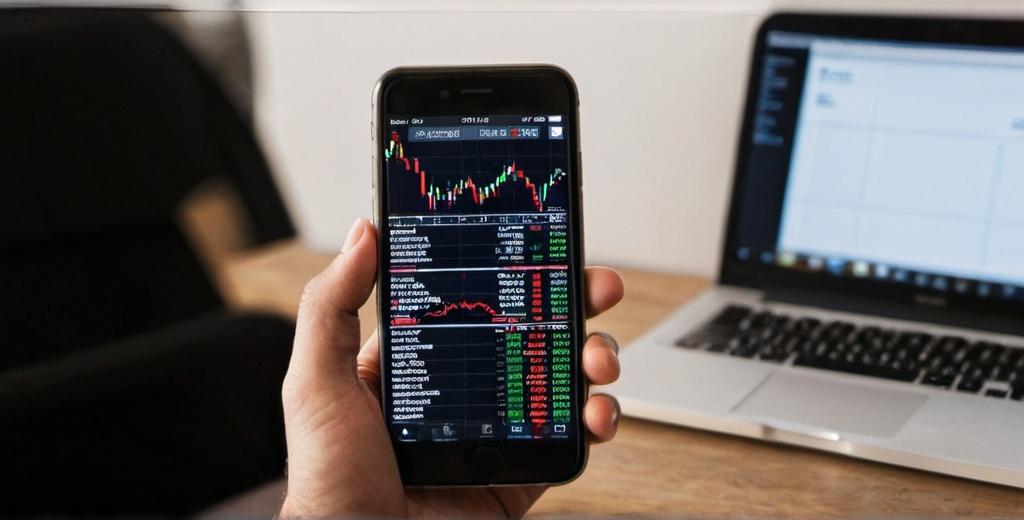Binary options trading across Africa exists in a regulatory grey zone. In most countries, the product is not formally recognised or licensed by local financial authorities. As a result, the majority of binary trading activity takes place through offshore brokers—typically firms registered outside the continent that accept African clients via online platforms and mobile apps.
Access is widespread. Brokers aggressively market to traders in Nigeria, South Africa, Kenya, Ghana, and Egypt, among others, using localised advertising, mobile compatibility, and low deposit requirements. Despite the growing participation, most traders operate without regulatory protection, formal education, or transparent oversight.

Regulation and Legal Status
The regulatory landscape across African nations is fragmented. Some countries have taken a stance on binary options, while others remain silent. In South Africa, the Financial Sector Conduct Authority (FSCA) has issued warnings about unregulated binary brokers but has not outlawed them. Nigerian regulators, including the Securities and Exchange Commission (SEC), have flagged high-risk investment schemes, but binary options are not explicitly banned.
In practice, few African countries license or regulate binary options directly. This leaves the market wide open to foreign platforms. These brokers usually claim regulation in offshore jurisdictions such as St. Vincent and the Grenadines, Cyprus, or the Seychelles. These licenses often offer minimal investor protection and no jurisdictional coverage for African traders.
To see how Africa compares with other global regions, refer to this overview of binary options regulations around the world, which outlines which countries regulate, ban, or allow access without restriction.
Broker Access and Market Activity
Most binary options brokers targeting Africa rely on mobile-first platforms with translated interfaces, WhatsApp-based customer service, and local deposit methods. These include mobile money services, prepaid vouchers, and third-party wallets. In Nigeria and Ghana, crypto has become the default method for both deposits and withdrawals. In South Africa, card payments and bank transfers are still accepted by some brokers.
Brokers promote simplified user onboarding, typically requiring only an email, phone number, and ID photo. Verification is usually minimal unless withdrawals are requested or disputes arise. Low minimum deposits—as low as $5—are common and designed to appeal to first-time users.
Trading activity is concentrated around short-duration contracts. Most African users trade on 1-minute to 15-minute expiry times, focusing on forex pairs like EUR/USD, GBP/USD, and USD/JPY. Gold, crude oil, and local stock indices (when available) are also traded. Strategy use is limited, and many users follow signals or copy trades from social media influencers and affiliate marketers.
Risks and Platform Reliability
Unregulated offshore brokers present significant risks to African traders. Common issues include:
- Withdrawal problems: Delays, account freezes, or rejection of payout requests tied to bonus terms or alleged policy violations
- Trade manipulation: Price mismatches or execution errors that are difficult to verify
- Lack of support: Customer service is often slow, outsourced, or limited to automated messaging
- Promotion by unverified affiliates: Social media marketers often exaggerate results or provide misleading signals in exchange for referral commissions
Because most platforms operate outside the reach of local regulators, traders have no legal recourse in the event of fraud or fund loss. Regulators in Africa are rarely equipped or mandated to enforce action against offshore financial entities, and users are generally left to deal with platforms directly.
Trading Culture and Education
Binary options in Africa attract a wide user base, particularly among young adults and first-time market participants. Many view it as a form of side income or digital speculation, not formal investment. This approach often results in overtrading, use of unreliable strategies, and a lack of attention to risk management.
Formal trading education is scarce. Most learning is informal—driven by YouTube content, TikTok tutorials, or WhatsApp-based signal groups. Very few African traders have access to structured training, regulated advisors, or tools to verify broker reliability. As a result, early losses are common, and account turnover is high.
Some traders move on to forex or crypto trading after initial experiences with binary options. Others remain in the binary space using progressively smaller stakes and more cautious methods. Only a small percentage achieve consistent results.
Outlook and Policy Trends
There is little indication that most African governments will regulate binary options in the near future. Financial regulators are focused on broader challenges—such as improving banking infrastructure, managing forex controls, and addressing crypto-related risks. Binary options remain a low-priority issue.
This means the current situation—unregulated access, offshore dependence, and user-driven risk—is likely to continue. Traders looking to participate will need to take responsibility for platform selection, funding security, and basic trade planning. Reliable brokers are difficult to identify without independent reviews or legal benchmarks.
As access to mobile internet and digital wallets expands, binary options trading in Africa will likely grow—especially in regions with high youth unemployment and demand for digital income opportunities. But without regulation, platform transparency, or formal education, the risks will remain high.